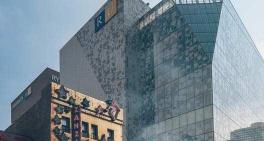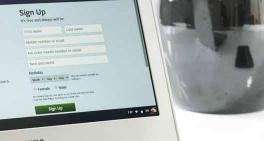Missouri court lets redistricting initiative go to voters
U.S. Court News
A Missouri appeals court panel cleared the way Friday for voters to decide a November ballot initiative that could shake up of the state Legislature by requiring districts to be drawn to achieve "partisan fairness" and imposing new lobbying limits.
The ruling overturned a decision issued a week ago by a state judge who said the so-called Clean Missouri initiative violated the state constitution by addressing multiple topics.
The Western District appeals panel disagreed, ruling that the "multiple provisions all relate to a single central purpose: regulating the legislature to limit the influence of partisan or other special interests."
Republican-aligned attorneys for those opposing the measure said they would appeal to the state Supreme Court. But time is running short. Missouri law sets a Tuesday deadline to make changes to the Nov. 6. ballot. The state's high court previously turned down a chance to hear the case in place of the appeals panel.
As it stands, the measure would appear on the ballot as Constitutional Amendment 1.
"We hope this brings an end to it and that the people can vote in November on whether they want to adopt these changes," said attorney Chuck Hatfield, who represents Clean Missouri.
The initiative has been opposed in court by the president of the Missouri Chamber of Commerce and Industry and a Republican voter who was represented by the law firm of Missouri Republican Party Chairman Todd Graves.
Related listings
-
Court: British surveillance violates European law
U.S. Court News 09/13/2018Europe's human rights court handed a partial victory Thursday to civil rights groups that challenged the legality of mass surveillance and intelligence-sharing practices exposed by American whistleblower Edward Snowden.The European Court of Human Rig...
-
Court extends detention of Cambodian opposition leader
U.S. Court News 08/30/2018A court in Cambodia has extended by six months the pre-trial detention of Kem Sokha, the leader of the now-dissolved main opposition party who already has been held for a year on a treason charge.One of Kem Sokha's lawyers says the court ruled Thursd...
-
Lawyers will seek to shift blame for warehouse fire at trial
U.S. Court News 08/19/2018Lawyers for the two men charged in the Northern California warehouse fire that killed 36 people said Friday they are now preparing for a trial where they will try to shift blame for the blaze from their clients to others, including the building's own...

USCIS Issues Clarifying Guidance on NAFTA TN Status Eligibility for Economists
U.S. Citizenship and Immigration Services (USCIS) announced today that it is clarifying policy guidance (PDF, 71 KB) on the specific work activities its officers should consider when determining whether an individual qualifies for TN nonimmigrant status as an economist.
The North American Free Trade Agreement (NAFTA) TN nonimmigrant status allows qualified Canadian and Mexican citizens to temporarily enter the U.S. to engage in specific professional activities, including the occupation of economist. The agreement, however, does not define the term economist, resulting in inconsistent decisions on whether certain analysts and financial professionals qualify for TN status as economists.
TN nonimmigrant status is intended to allow a limited number of professionals and specialists to work temporarily in certain specifically identified occupations in the United States. This updated guidance provides USCIS officers with a specific definition of one such category – economists – allowing them to adjudicate applications in a way that complies with the intent of the agreement. This policy update clarifies that professional economists requesting TN status must engage primarily in activities consistent with the profession of an economist. Individuals who work primarily in other occupations related to the field of economics — such as financial analysts, marketing analysts, and market research analysts — are not eligible for classification as a TN economist.




